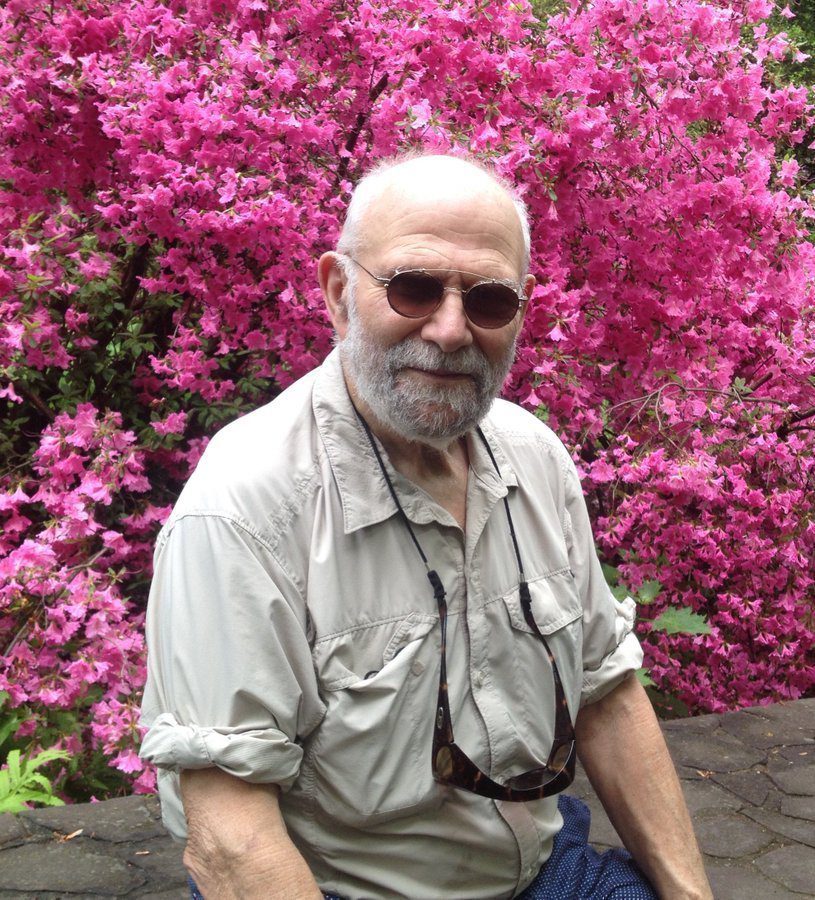Oliver Sacks: The Healing Power of Nature and Gardens

Oliver Sacks MD was a much beloved author and essayist who died in 2015. Robin Williams played him in the movie “Awakenings,” about Sacks’ work as a neurologist with catatonic patients in the Bronx, based on a previous Sacks book.
In his essay “Why We Need Gardens,” from his book “Everything in Its Place: First Loves and Last Tales,” (2019) published posthumously, Sacks writes about how patients who were unable to function inside a hospital seemed to come alive in a garden. He worked at Beth Abraham, just across the road from the New York Botanical Garden.
He writes, “Clearly, nature calls to something very deep in us. Biophilia, the love of nature and living things, is an essential part of the human condition.”
Sacks uses another word, “hortophilia,” to describe the deep bond people have with gardens. It is the desire to interact with nature, to manage and tend a garden, to water a sagging plant, deadhead a geranium. In some people it can be as strong as the need to respond to a baby’s cry.
Sacks was amazed to find that neurologically impaired patients, incapable of tying their own shoe laces, immediately knew how to plant a seedling in a garden. “I have never seen such a patient plant something upside down,” he wrote.
“The effects of nature’s qualities on health are not only spiritual and emotional but physical and neurological,” he concluded. “I have no doubt that they reflect deep changes in the brain’s physiology, and perhaps even its structure.”
He recounts how his friend Lowell had severe Tourette’s syndrome in the city environment: uncontrollable tics and sounds, grunting, jumping, touching things compulsively. Hiking with Lowell in the desert, Sacks said, he was amazed to find the symptoms disappeared. “The remoteness and uncrowdedness of the scene, combined with some ineffable calming effect of nature, served to defuse his ticcing, to ‘normalize’ his neurological state, at least for a time.”
Sacks was born in London and educated at Oxford. He left England (above, he’s above visiting his childhood home in Northwest London) when his Orthodox parents would not accept that he was gay, and moved to New York.
In the essay Sacks says, “I have lived in New York City for 50 years, and living here is sometimes made bearable for me only by its gardens.”
He wrote, “I cannot say exactly how nature exerts its calming and organizing effects on our brains, but I have seen in my patients the restorative and healing powers of nature and gardens, even for those who are deeply disabled neurologically. In many cases, gardens and nature are more powerful than any medication.”
In her marvelous web site Brain Pickings, Maria Popova, reflecting on Sacks’ essay, wrote “Indeed, to garden — even merely to be in a garden — is nothing less than a triumph of resistance against the merciless race of modern life, so compulsively focused on productivity at the cost of creativity, of lucidity, of sanity…”
It is, she writes, “a return to what is noblest, which means most natural, in us.
“There is something deeply humanizing in listening to the rustle of a newly leaved tree, in watching a bumblebee romance a blossom, in kneeling onto the carpet of soil to make a hole for a sapling, gently moving a startled earthworm or two out of the way.”
Sacks said in his essay:
“As a writer, I find gardens essential to the creative process; as a physician, I take my patients to gardens whenever possible. All of us have had the experience of wandering through a lush garden or a timeless desert, walking by a river or an ocean, or climbing a mountain and finding ourselves simultaneously calmed and reinvigorated, engaged in mind, refreshed in body and spirit. The importance of these physiological states on individual and community health is fundamental and wide-ranging. In forty years of medical practice, I have found only two types of non-pharmaceutical ‘therapy’ to be vitally important for patients with chronic neurological diseases: music and gardens.”
Perhaps it would not be unwise to have both, simultaneously. — Linda Lee
n.b. In April 2019 the Oliver Sacks foundation asked followers on its Twitter feed to submit photos of their favorite plant; the top four would win copies of Sacks’ book of essays. The thread has a lovely collection of people’s favorite flowers.
Photo credit: Sacks with azaleas, Bill Hayes
Center photo: The Academy of Achievement
